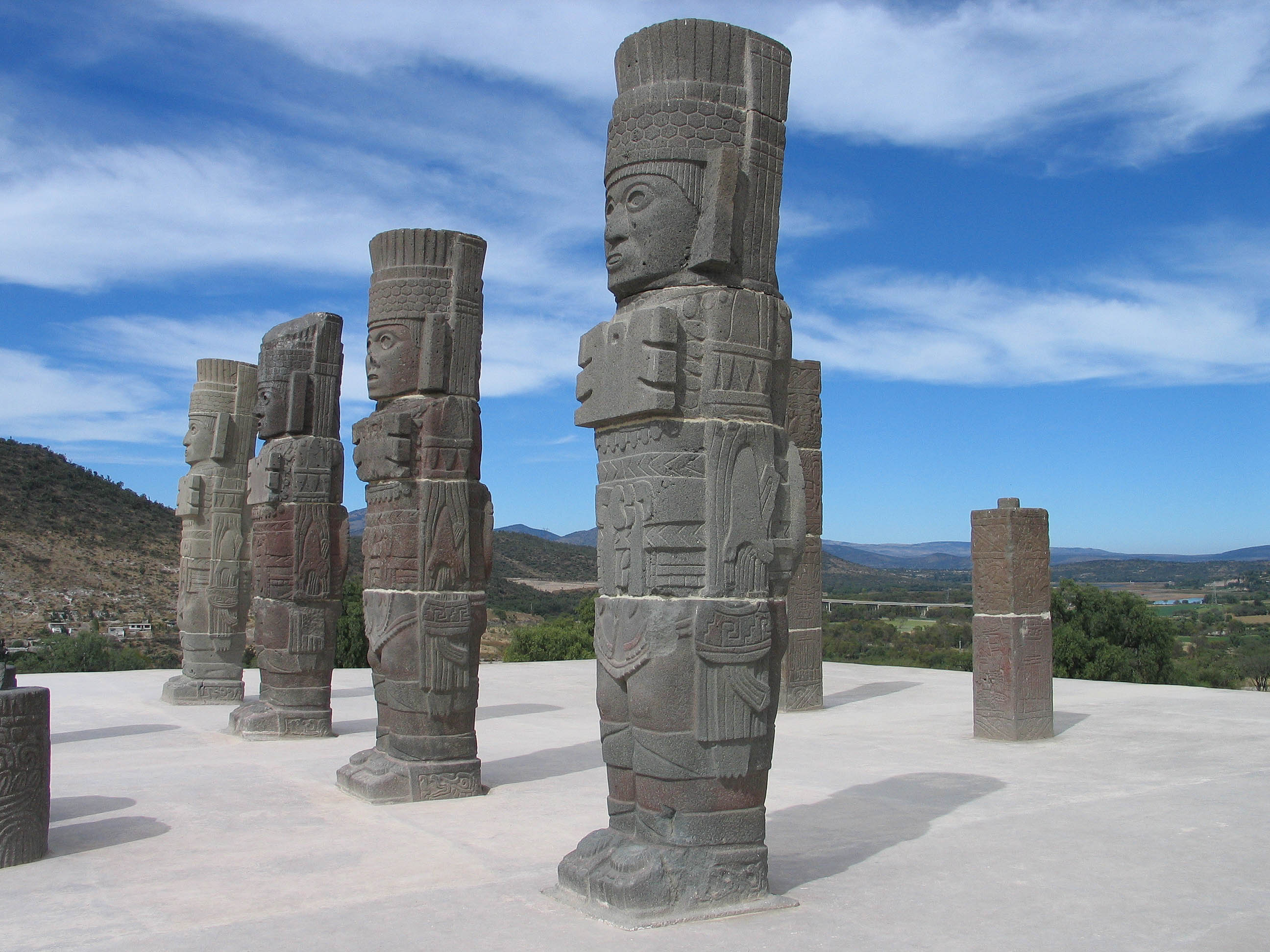All AP Art History Resources
Example Questions
Example Question #5 : Architecture Of The Americas
The Anasazi were notable for constructing buildings in __________.
stone cliffs
swamplands
desert plains
lake islands
stone cliffs
The Anasazi are believed to have developed a unique culture in the American southwest around roughly the twelfth century B.C.E. The most notable aspect of Anasazi ruins and buildings is their location. In multiple sites in the Four Corners region, large stone palaces and other buildings are built into caves along stone cliffs, creating the look of a building that comes directly out of the stone walls.
Example Question #181 : Architecture
The Mayan civilization of Mesoamerica is perhaps best known for building which Pre-Columbian city, which in this day and age has become a popular tourist attraction?
Chichen Itza
Tlaloc
Queztalcoatl
Zocalo
Tenochtitlan
Chichen Itza
Chichen Itza, built and occupied between 600 and 1200 BCE, is a famous city built by the Mayans in what is today known as Yucatán, Southern Mexico. It is not completely known why Chichen Itza was abandoned, only that it remains in good condition to this day, and is a stunning example of Mayan architecture.
Example Question #371 : 3 D Art

The pyramids found alongside these stone monuments in what is now Hidalgo, Mexico, are examples of the architectural style of which pre-Columbian civilization of Mesoamerica?
None of these
The Inca civilization
The Aztec civilization
The Olmec civilization
The Toltec civilization
The Toltec civilization
The Toltec civilization dominated the area of Mexico that is now known as the state of Hidalgo in the early post-classic period of Mesoamerican chronology. The pyramids constructed in Tula, Hidalgo, Mexico, show an interesting similarity to Mayan architecture, though they are different enough as to be able to determine Toltec from Mayan architecture. What the similarities seem to hint at is that there was some kind of interaction between the Mayan and Toltec civilizations.
In addition, the Aztec peoples considered the Toltec civilization as their ancestors. Although little is known about the history of the Toltec civilization, the Aztecs wrote about them extensively. Unfortunately, it is not known if the accounts of the Aztecs are indeed historical, or simply fictional accounts of those whom they consider to be their ancestors.
Image accessed at: https://commons.wikimedia.org/wiki/File:Telamones_Tula.jpg
Photograph by Luidger
Example Question #182 : Architecture

The free-standing columns found in Hidalgo, Mexico, are a remnant of the architecture of which pre-Columbian civilization?
The Toltec civilization
The Aztec civilization
The Olmec civilization
None of these
The Mayan civilization
The Toltec civilization
The Toltec civilization dominated the area of Mexico that is now known as the state of Hidalgo in the early post-classic period of Mesoamerican chronology. The free-standing columns depicting Toltec warriors, also called Atlantean figures, are an example of the art and architecture of the Toltec civilization.
The Aztec people considered the Toltec civilization to be their ancestors. They saw these statues as representations of their Gods, such as Quetzalcoatl, and saw the Toltec architecture of Tula, Hidalgo as a divine space, like a city of Gods.Photograph by Luidger
Example Question #184 : Architecture

Monte Albán, estimated to have been built in 500BC, and located in what is now known as the state of Oaxaca in Mexico, was primarily occupied by which pre-Columbian civilization?
The Mayan civilization
The Olmec civilization
The Aztec civilization
The Zapotec civilization
The Inca civilization
The Zapotec civilization
Monte Albán was the cultural and political center of the Zapotec civilization for over one thousand years. The Zapotec civilization occupied the area now known as Oaxaca in Mexico. It was founded between 500 and 700BC, and later abandoned, over 1,000 years later. Although other Pre-Columbian civilizations discovered and potentially occupied the remains of Monte Albán after its abandonment, no civilization occupied it as their cultural and political center like the Zapotec civilization did.
Example Question #185 : Architecture

Monte Albán, pictured above, occupied from the year 500 BC to the year 850 AD, is a classic example of which style of architecture?
Pre-Columbian
Ancient Egyptian
Ancient Greek
Mexican Baroque
Mesopotamian
Pre-Columbian
Monte Albán, founded in large part by the Zapotec civilization, is a classic example of Pre-Columbian architecture. This means that it is was constructed in the Americas prior to European discovery and settlement. The city's stacked-pyramid appearance is a classic example of the most well-known style of Pre-Columbian, Mesoamerican architecture. In addition, the dates of its occupancy match up to those of Pre-Columbian civilizations.
Certified Tutor
Certified Tutor
All AP Art History Resources



